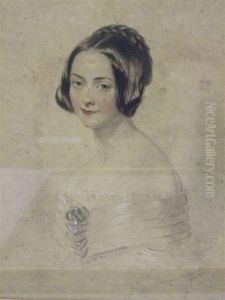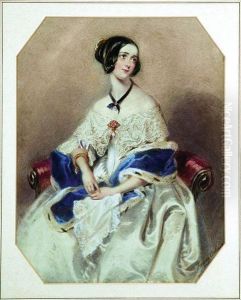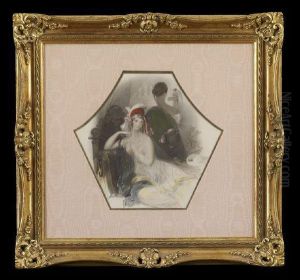Fanny Doetger Corbaux Paintings
Fanny Doetger Corbaux, born in London in 1812, was a notable British artist, antiquarian, and scholar of the Victorian era. Despite the limited opportunities for female artists during her time, Corbaux managed to establish herself as a respected painter and intellectual. Her work often reflected her scholarly interests, including subjects from history and literature, and she gained recognition for her historical and biblical scenes, as well as her portrait work.
Corbaux was well-educated and showed an early talent for art. She was a member of the Royal Watercolour Society and exhibited her work at various institutions, including the British Institution, the Royal Academy of Arts, and the Society of British Artists. Her paintings were praised for their detail and historical accuracy, which was a result of her extensive research.
In addition to her artistic career, Fanny Corbaux was also deeply involved in antiquarian studies. She was particularly interested in the early history of the British Isles and the Middle East. Her scholarly pursuits led her to become a member of the Royal Society of Literature and the Society of Antiquaries. Corbaux's interests also extended to linguistic studies, and she was known for her work on the Assyrian cuneiform script.
Throughout her life, Corbaux remained active in intellectual circles and contributed to various publications and scholarly discussions. Despite her achievements, like many women of her time, she struggled to gain the same level of recognition as her male counterparts. Nonetheless, her legacy as a pioneering female artist and scholar endures. Fanny Doetger Corbaux passed away in 1883, leaving behind a body of work that continues to be of interest to art historians and scholars of Victorian culture.


